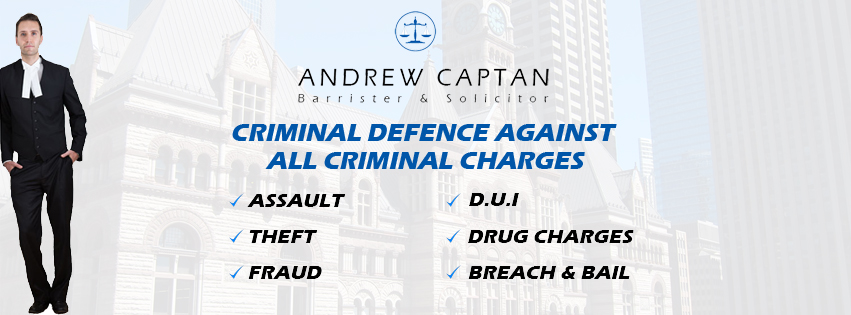Toronto Domestic Assault Lawyer Tips on Home to Return Home & Reunite with Your Loved Ones

Introduction
If you’ve been charged with a domestic assault related offence in Toronto or anywhere else in Ontario, one of the most crucial and common questions a lawyer is faced with before a case starts is “how and when can you get me home”?
The reason this question is often asked is that, invariably, most people charged with domestic assault charges will be released on conditions that restrict contact with the complainant, who is often a significant other, and often a significant other which whom the accused resides.
Domestic assault charges can cause chaos and upheaval for this reason. In this article, an experienced Toronto Domestic Assault Lawyer provides free legal information that is comprehensive in nature, and effectively provides you with an up to date knowledge base from a legal practitioner regarding the steps to try and return home while faced with release conditions that prevent you from doing so.
Impact of Release Conditions on Families
The impact of release conditions can be significant and difficult to manage. An experienced Toronto Domestic Assault Lawyer will have faced numerous situations wherein release conditions have caused challenges on clients’ lives as well as their families. The following aspects of one’s live can be re-arranged and impacted, besides not having direct access to the family home:
- Finances may be jeopardized, if the parties cannot speak
- Access to children may be difficult
- Access to important personal property involves barriers
- Family businesses, which sometimes are run from a family home, may be left for ruin
In this article, a focus will be on the single question of how and when an accused person may be able to return home and re-establish contact with their significant other (the complainant).
Types of Release Conditions in Domestic Assault Cases in Toronto
In a Domestic Assault or Domestic Violence case in Toronto, like any other criminal cases, there are effectively two ways in which an accused person who has just been arrested may be released back into the community:
- On a Form 11 Undertaking to a Peace Officer / An Appearance Notice
- On a Recognizance of Bail
Undertakings / Appearance Notices
This is a less intrusive way in which an accused may be released. In a Domestic Case, a release in this context occurs wherein the accused person signs paperwork with the police, agreeing to follow certain conditions, as well as an agreement to appear in court and for fingerprinting. The accused is often released from the precise location of the arrest or from the police station. The accused is often not held in police custody for any extended period of time.
Recognizances of Bail
A more intrusive release occurs where the police make the decision to hold the accused for a bail hearing, which is a hearing that occurs before a Justice of the Peace in which the JP determines whether the accused is releasable, and if so, on what conditions.
It is important to distinguish which of these forms of release you have been placed on to determine potential legal steps to have conditions amended that would permit you to return home and reunite with your partner. The title at the top of the release document, of which you should be given a copy, would indicate the nature of the release. The importance of this difference will be explained in more detail below under a separate heading.

Types of Conditions Commonly Seen in Domestic Assault Cases
Whether you’ve been released on an Undertaking or a Bail, the most common type of conditions you will see in Domestic Assault Cases in Toronto include the following, all of which would create restrictions on returning home:
- Do not communicate or have contact, directly or indirectly, with the named complainant
- Do not be within X number of metres from the named complainant
- Do not attend address X [which may be your own residence]
Courts and the will always have these types of conditions in place, and usually they are in place without exception. Sometimes, there are exceptions provided to the conditions, and these should be reviewed carefully with a Toronto Domestic Assault Lawyer. One misstep could lead to a challenging situation becoming all the more legally difficult to deal with if you are charged with a breach of your release.
Types of Exceptions to “No Contact” and “Non-attendance” Conditions
It is extremely rare, but possible, that a Justice of the Police or the Court will release you with exceptions that permit you to have contact with your partner and to return home. If you are someone who has an exception that permits contact in some fashion, count yourself as being extremely lucky. This happens infrequently. If it does happen, Toronto Domestic Assault Lawyers will find that an experienced Justice of the Peace, rather than the police, will be the one to invoke such an exception.
The most common exception that might be added to your release, particularly to the “non communication” and “non attendance” conditions referred to above would be as follows:
- EXCEPT with the prior written, and orally revocable, consent of the named complainant, to be filed with the Officer in Charge (or designate)
What does that even mean, you may be thinking? To put it simply, if you find this type of exception on your release, this typically means that if the person referred to in your Order files a letter with the police, explaining that they want to communicate with you / have contact with you / live with you (or whatever they specify they are comfortable with), then you would be permitted to engage in that contact after that letter is filed. The key, though, is that the letter is “orally revokable”, meaning that if they tell you later on to leave, you would have to leave right away.
Variations on Consent of the Crown
The most streamlined approach to securing a variation of your condition – undertaking or bail – would be to try and obtain the consent of the Crown.
The Crown’s office sees changes to these types of conditions (returning home and having contact with the complainant) as being significant changes to your release, and takes a cautious approach to consenting (agreeing) to these changes.
There is no one size fits all answer as to when the Crown will consent, or on what basis. Every experienced Toronto Domestic Assault Lawyer will have their own views on when the appropriate time is to attempt to obtain the Crown’s consent, and the strategy to do so.
As far as timelines go, obtaining this consent may realistically happen about 1.5 months after the first appearance in your case. This isn’t a hard and fast timeline – sometimes it can happen sooner and sometimes it can take longer.
The trickier part is coming up with a strategy to try and obtain the Crown’s consent. Some of the following are factors the Crown will review before agreeing to this type of change:
- Has there been a Crown pre-trial meeting and, if so, has there been an agreement as to how the case can be resolved. If there has been such an agreement, the consent is more readily obtainable
- Has the Crown received input from the complainant, and if so, has the complainant confirmed that they want to have full contact with you and want you back home. Without this input, you will NOT obtain a consent bail or undertaking variation
- Has the accused person started counselling in regards to domestic violence. If they have, consent is more readily obtainable
You need to consult with an experienced Domestic Assault Lawyer in Toronto in order to determine a realistic time frame in your case for securing a consent variation, along with a strategy to employ to do so.

Where Do You Get the Application Forms for Consent Variations
You can download the forms on the Ontario Court of Justice website. Make sure they you download the correct form that corresponds to your type of release. Submitting the incorrect form will lead to the form being rejected.
To download an Undertaking Variation form, visit THIS link.
To download a Bail Variation form, visit THIS link.
Downloading these forms is the easy part. It’s crucial to get legal advice from a Toronto Domestic Assault Lawyer regarding filling out the form and timing the submission of it!
What if the Crown Does Not Consent to a Bail or Undertaking Variation
In a Domestic Assault case, if the Crown Does not consent to a Bail or Undertaking Variation that would permit you to return home and reunite with a loved one, then you’re left with only two options:
- Find a way to make do with your current conditions
- Apply to the Court for a Bail or Undertaking Review
The second option, to be done properly, usually requires significant legal knowledge. Consult a Domestic Assault Lawyer in Toronto about this more complicated process.
Bail Reviews
A bail review is an application that you must bring if you are on bail, and is submitted to the Superior Court of Justice by way of a notice of application and application record. This material is not simple to compile, and once it’s filed, it must be argued before a Judge. The Crown at a bail review would oppose your requests, and you must make arguments as to why a Judge should grant the request sought in the material. Typically, you would need to establish a “material change of circumstances” to stand any chance at Judicial approval.
Undertaking Reviews
An undertaking review is similar in nature to a bail review, in that you must compile material, file it with the court and argue the motion in front of a Judge. The main difference is that the application is heard at the Ontario Court of Justice level, which is where all criminal cases begin (and most domestic assault cases remain for their life span).
How Long Do Bail and Undertaking Conditions Last
These conditions last until the case is complete in court or a variation occurs prior to completion. People often wrongly assume that after their first appearance in court, everything will go back to normal and they will go back home. That is not the case.
Andrew Captan – Toronto Domestic Assault Lawyer
Andrew Captan is an experienced Domestic Assault Lawyer in Toronto who has assisted many families with reuniting after domestic assault charges have unravelled their lives. For a free consultation with Mr. Captan, call (647) 878 – 6355, e-mail andrew@captanlaw.com or visit his website HERE.
